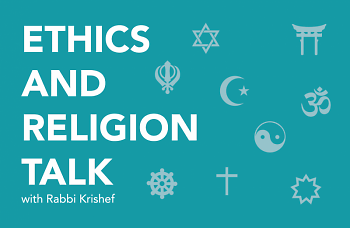Linda Knieriemen is a minister in the Presbyterian Church (USA).
Absolutely. There are no restrictions to attending a worship service of another faith. If invited to participate in the leadership of that worship I would do so in humility and gratitude for this openness but I would not allow myself to participate in such a way that would conflict or diminish my personal beliefs or those of the PCUSA core beliefs.
Father Kevin Niehoff, O.P., is a Dominican priest and serves as Judicial Vicar, Diocese of Grand Rapids.
Yes, Roman Catholic priests may attend other houses of worship for services. As an act of ecumenism, the priest could have a designated spot in the congregation but ought not to participate on a formal level. There should never be a question of why the priest is present at a non-Catholic service. Spiritual support, prayers, and presence are the extent of the participation.
Fred Stella is the Pracharak (Outreach Minister) for the West Michigan Hindu Temple
By all means, we are under no restrictions in this area. I have not only attended, but participated in services of various religions before and after my ordination. When in a church, synagogue or mosque, I recite prayers that resonate with me and hold silent when they don’t. In churches, I do not take Communion. I do that out of respect for how it is held in Christianity, especially Catholicism or Eastern Orthodox, as they hold the taking of it as a very powerful statement of faith.
The Reverend Colleen Squires is minister at All Souls Community Church of West Michigan, a Unitarian Universalist Congregation.
Unitarian Universalist ministers are not only allowed but I would even say we are somewhat encouraged to visit or participate in other houses of worship. Learning and experiencing other religions would be seen as a benefit. We ask our youth to participate in a class called Neighboring Faiths where we visit other houses of worship to learn about their religion, I thoroughly enjoy attending these visits with them.
Rev. Ray Lanning, a retired minister of the Reformed Presbyterian Church of North America, responds:
Presbyterianism is devoted to freedom of conscience in thought, word, and deed. We hold that, ”God alone is Lord of the conscience, and hath left it free from the doctrines and commandments of men which are in anything contrary to His Word” (Westminster Confession, Ch. XX, Section II). A Presbyterian church may command only what God’s Word commands, and forbid only what God’s Word forbids. One entire chapter in our Confession of faith is an exposition and affirmation “Of Christian Liberty, and Liberty of Conscience” (Ch. XX).
A Presbyterian may go to any house of worship, to observe at least, if his Christian faith prevents him from participation in the worship of that place. I have attended public worship in churches of many other Christian denominations, and participated freely in many of those services, to my profit. I have attended services in Jewish synagogues, often enough to feel at home with the liturgy even with my limited knowledge of Hebrew. Other than donning a kippah, I was not asked to do anything I would not do in a Presbyterian church, or among Christians.
My response:
There are traditionally orthodox opinions within Judaism that visiting a non-Jewish house of worship is the equivalent of going into a place resembling idol worship and therefore it is forbidden. Medieval Jewish communities typically agreed that Christianity was not idolatry, but the heavy emphasis on icons makes it appear as if some amount of worship of images is happening. In addition, there was very little love between medieval Christian and Jewish communities, so Jew had little interest in visiting churches, a position that continues to affect many Jews.
Most non-orthodox Jews don’t have a theological problem visiting a church, but for some, the memory that most Christians stood by and did not intervene in the Shoah and did not advocate for US involvement in WWII until the US itself was attacked is enough to make the thought of visiting a church uncomfortable. The official position of the non-orthodox movements is that there is no legitimate religious reason to be concerned about visiting a church.
Participation in a Christian service is more problematic because it might involve prayers in the name of Jesus, something inconsistent with Jewish practice and belief. With advance planning, however, it is possible to select a prayer that a Jew would be able to lead. Another possibility for participation in a church service would be to deliver a sermon.
This column answers questions of Ethics and Religion by submitting them to a multi-faith panel of spiritual leaders in the Grand Rapids area. We’d love to hear about the ordinary ethical questions that come up in the course of your day as well as any questions of religion that you’ve wondered about. Tell us how you resolved an ethical dilemma and see how members of the Ethics and Religion Talk panel would have handled the same situation. Please send your questions to [email protected].
The Rapidian, a program of the 501(c)3 nonprofit Community Media Center, relies on the community’s support to help cover the cost of training reporters and publishing content.
We need your help.
If each of our readers and content creators who values this community platform help support its creation and maintenance, The Rapidian can continue to educate and facilitate a conversation around issues for years to come.
Please support The Rapidian and make a contribution today.
